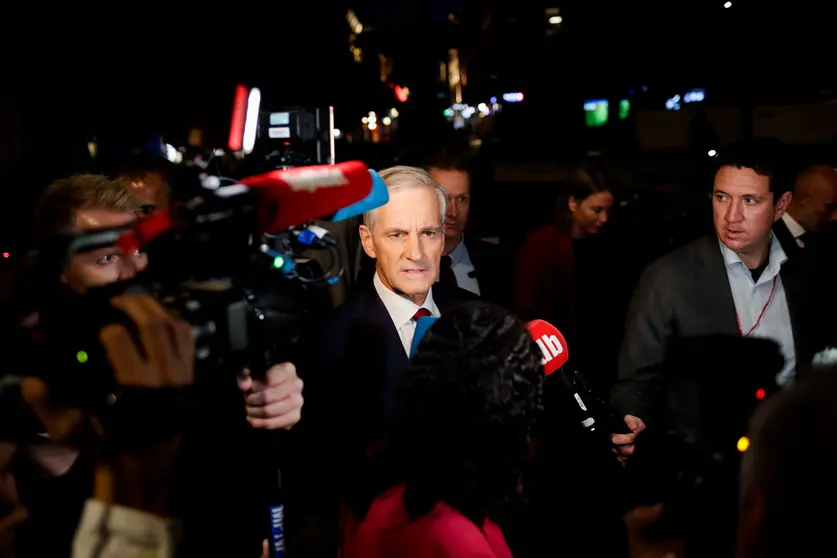Norway's centre-left Labour Party is set to form a new government after taking the largest share of votes in parliamentary elections Monday.
With a preliminary count of the vote some 99 per cent complete, the Labour Party, led by Jonas Gahr Store, took 26.4 per cent of the vote, while the Conservatives, led by Prime Minister Erna Solberg, got 20.5 per cent.
Solberg conceded defeat late Monday. "I congratulate Jonas Gahr Store on a - as it now appears - clear majority for a change of government," she told her party colleagues.
The election campaign was tough but good, Solberg said, adding she was proud of what her party had achieved in the last eight years of government. The 60-year-old has been prime minister since 2013.
Store celebrated his party's electoral victory with supporters in Oslo. "We worked hard and now we can finally say - we did it," the 61-year-old said late Monday as supporters cheered "Jonas, Jonas!"
Store said the numbers so far pointed towards a solid majority for the centre-left alliance made up of Labour, the Centre Party and the Socialist Left Party.
These three parties garnered a majority of 89 seats in Norway's parliament. At least 85 of 169 seats are needed for a majority.
The three-party constellation is "Plan A," he said, but added he wanted to invite all parties seeking a change in government to talks.
The preliminary results marked losses for both of the two top parties compared to the last parliamentary election four years ago. While Labour saw a slight drop from 27.4 to 26.4 percent, the Conservatives netted a bigger loss from 25 to 20.5 per cent.
Several smaller parties, on the other hand, were able to make gains. The Centre Party with its candidate Trygve Slagsvold Vedum stood at 13.6 per cent, putting it in third place and almost two percentage points ahead of the right-wing populist Progress Party.
Imminent change
The pre-election polls had been pointing to an imminent change of government in the non-EU country for some time.
If Store's favoured coalition does not work out, he could also depend on the support of the Greens, currently on 3.8 per cent, and the Red Party, which is on 4.7 per cent.
But minority governments are also not uncommon in Scandinavia. In Denmark and Sweden, for example, Store's centre-left party colleagues Mette Frederiksen and Stefan Lofven also govern in this form. Solberg has also led Norway with a minority government since the beginning of 2020, after the right-wing populists left the coalition.
A move to the left and away from the Conservative Party would give Norway a government more in line with its Scandinavian neighbours.
Some 3.9 million people were eligible to vote.
Monday was the official voting day, but polling stations in around half the nation's towns were also open on Sunday. Postal and online voting opened even earlier, which some 1.65 million Norwegians, or more than 42 per cent of all eligible voters, took up those options.
Climate, petroleum policies
Norway's elections directorate is expected to announce the preliminary final result on Tuesday.
Climate, environmental protection and associated petroleum policies played a major role in campaigning.
Norway's oil sector has contributed to making the Scandinavian country one of the world's wealthiest, but as climate fears grow, many in the country are now demanding a less oil-reliant economy.
The publication of the latest dire report by the Intergovernmental Panel on Climate Change (IPCC) a month ago gave Labour and other smaller left-wing parties with a clearer climate focus a boost.
More than a year ago, in the spring of 2020, Solberg was still doing well in the polls, thanks in large part to Norway's relatively successful management of the pandemic's first wave.
But her Conservative Party's numbers have since been eroding while Store's Labour Party has ascended.
Store was foreign minister in the previous government under then Labour Party prime minister Jens Stoltenberg, who currently serves as NATO's secretary general.
In the last elections four years ago, Solberg's Conservative won slightly fewer seats than Labour. But after months of negotiations Solberg was able to form a centre-right government and keep the top job.













